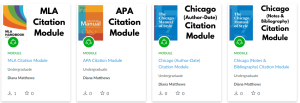
Research assignments play a crucial role in college education, serving as an effective means to assess students’ abilities in integrating course concepts with critical thinking skills. However, creating a well-designed research assignment involves careful consideration. According to a study, 85% of students felt they lacked sufficient information from professors to initiate assignments, and 73% were uncertain about the expectations of college-level research.
To assist educators in crafting effective research assignments, this page offers best practices and highlights common pitfalls. Collaboration with librarians is encouraged for developing research assignments, and librarians can serve as valuable partners in this process.
Best Practices for Research Assignments:
- Scaffold the Assignment: Break down the research assignment into manageable steps with short-term deadlines, such as topic proposals, outlines, annotated bibliographies, and rough drafts. This approach facilitates better time management and allows for formative feedback.
- Address Assignment Expectations and Grading: Clearly communicate expectations using the TILT framework for transparent assignments. Discuss the assignment early, provide a rationale for its importance, include comprehensive instructions, define terms, and offer grading guidelines with a rubric. Exemplars and examples can enhance understanding.
- Specify Sources: Carefully specify which sources students can or cannot use, aligning with the assignment topic. Clearly state expectations for scholarly sources, considering online options, and be mindful of restrictions that match the chosen topics.
- Provide Research Support: Recognize that students may need assistance with college-level research. Work with library liaisons to develop modules or source lists, schedule library instruction sessions, and offer research study hall options for independent work with librarian support.
- Provide Citation Resources: Support students by providing examples or links for preferred citation styles, such as APA, MLA, or Chicago. Utilize the library’s in-depth citation guides and consider importing citation modules into online platforms like Canvas.

Refer Students: Encourage students to seek support from librarians and writing tutors for various stages of the research process. Librarians can assist with defining topics and finding sources, while writing tutors can help with paper planning and revisions.
Get Research Help
Sample Wording for Assignment Directions:
Include language in assignment directions guiding students to seek assistance from Santa Fe College librarians for source location and citation. Highlight the availability of librarians for guidance and writing tutors for writing-related support.
Common Pitfalls:
Address the assumption that students are proficient in research and familiar with scholarly sources. Solutions include incorporating opportunities for learning about college-level research through library instruction and encouraging students to consult librarians for assistance.
By adhering to these best practices and addressing common pitfalls, educators can enhance the effectiveness of research assignments and support students in developing valuable research skills.
Get Research Help

Library Reference Desk
|

